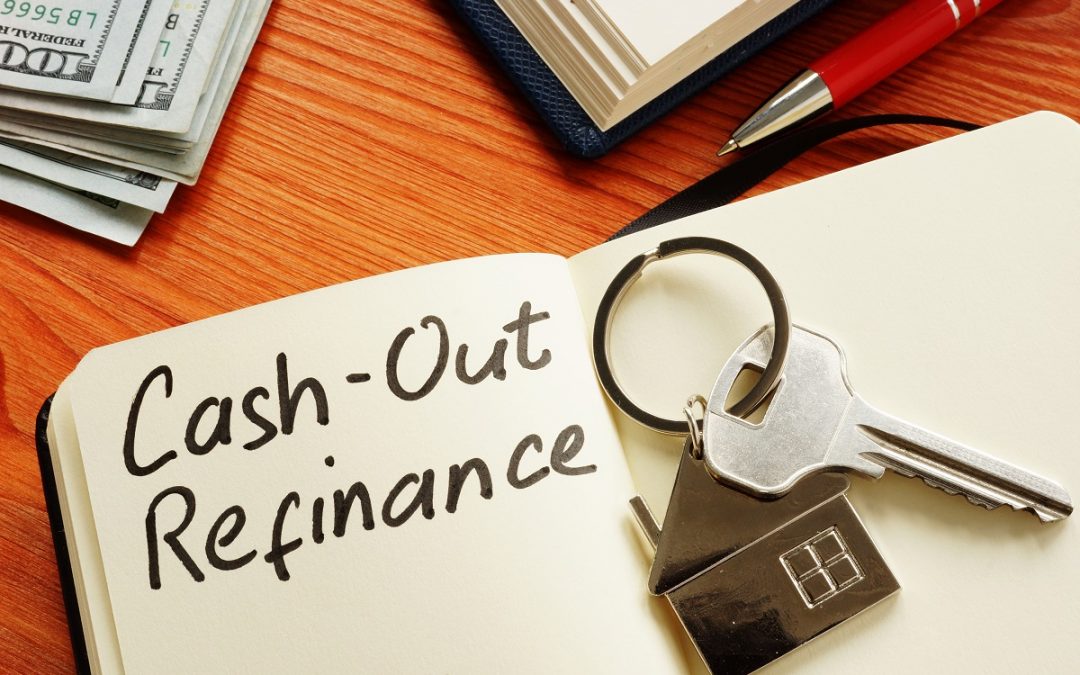If you’ve been paying your mortgage for a while, chances are your home has built up equity. But did you know you can use that equity to access cash for big expenses, debt consolidation, or home improvements? That’s exactly what a cash-out refinance allows you to do.
Unlike a standard refinance, which simply replaces your old loan with a new one, a cash-out refinance gives you a new mortgage for more than you currently owe—and you take the difference in cash.
This guide explains what a cash-out refinance is, how it works, its benefits, risks, and whether it’s the right move for you.
What Is a Cash-Out Refinance?
A cash-out refinance is a type of mortgage refinancing where you replace your current loan with a new, larger loan. The difference between the two amounts is given to you in cash, which you can use however you like.
For example:
-
If your home is worth $300,000 and you still owe $180,000 on your mortgage, you may refinance for $240,000.
-
You pay off your old balance of $180,000.
-
The extra $60,000 goes to you as cash at closing.
Essentially, it’s a way to convert your home equity into usable funds.
How Does a Cash-Out Refinance Work?
The process is similar to a standard mortgage refinance:
Apply with a lender – Submit your financial documents.
Home appraisal – Determines your property’s current market value.
Loan approval – The lender reviews your credit, income, and equity.
Closing – You sign the new loan and receive your cash payout.
Most lenders allow you to borrow up to 80% of your home’s value (sometimes higher with VA loans).
Common Uses for Cash-Out Refinancing
-
Home Improvements: Remodel your kitchen, upgrade your roof, or add energy-efficient features.
-
Debt Consolidation: Pay off high-interest credit cards or personal loans at a lower mortgage rate.
-
College Tuition: Cover education costs with lower rates than student loans.
-
Emergency Expenses: Medical bills or unexpected financial needs.
-
Investments: Some use the cash to fund a business or other investment opportunities.
Benefits of a Cash-Out Refinance
-
Lower Interest Rates: Mortgage rates are usually lower than personal loan or credit card rates.
-
One Monthly Payment: Consolidate debt into your mortgage for simpler budgeting.
-
Tax Deduction Potential: Interest may be tax-deductible if used for home improvements (check IRS rules).
-
Access to Large Sums: Ideal for major expenses that savings alone can’t cover.
Risks and Downsides
-
Closing Costs: Expect to pay 2–6% of the loan amount.
-
Risk of Foreclosure: Your home secures the loan—missed payments could put it at risk.
-
Longer Repayment Timeline: Taking cash out may reset your mortgage term.
-
Possible Higher Rate: Cash-out refinances sometimes come with slightly higher interest.
Requirements for Cash-Out Refinance
-
Credit Score: Typically 620+ for conventional, but VA loans may allow lower.
-
Home Equity: Usually at least 20% equity required.
-
Debt-to-Income Ratio (DTI): Generally 43% or less.
-
Proof of Income: Tax returns, W-2s, and pay stubs.
-
Appraisal: Confirms the current market value of your property.
Cash-Out Refinance vs. Home Equity Loan vs. HELOC
-
Cash-Out Refinance: Replaces your mortgage with a larger one; you get cash upfront.
-
Home Equity Loan: Second mortgage with fixed payments.
-
HELOC (Home Equity Line of Credit): Revolving line of credit, like a credit card, secured by your home.
Key Difference: With a cash-out refinance, you only have one mortgage payment instead of two.
When Does a Cash-Out Refinance Make Sense?
It could be a smart move if:
-
Interest rates are favorable.
-
You need funds for improvements that add value to your home.
-
You want to consolidate high-interest debt.
-
You plan to stay in the home long enough to make refinancing worthwhile.
Avoid it if you plan to sell soon, can’t cover closing costs, or risk over-borrowing.
Frequently Asked Questions (FAQs)
How much cash can I get with a cash-out refinance?
Most lenders allow up to 80% of your home’s value, though VA loans may allow up to 100%.
Does a cash-out refinance affect my taxes?
Interest may be tax-deductible if the funds are used for qualified home improvements. Always confirm with a tax advisor.
Can I use the cash for anything I want?
Yes, but using it for home improvements or debt consolidation is usually the smartest choice.
